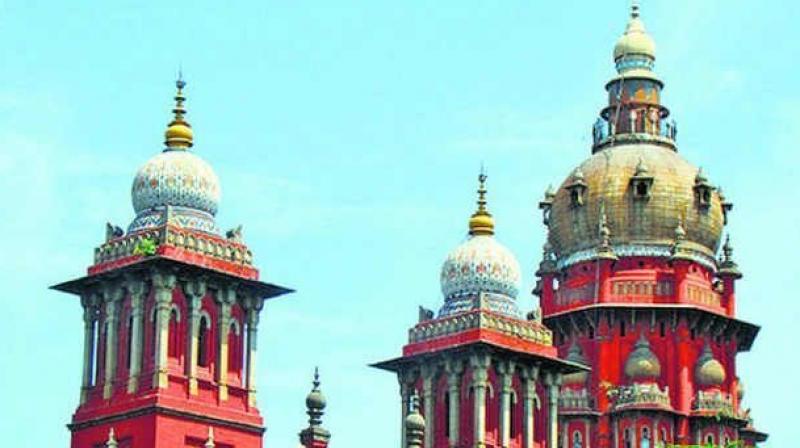Mosques told to follow mike rules
The authorities are duty bound to prevent the breach of pollution laws, the bench added.

Chennai: No person whatever be the religion, whether he be a Mohammedan, a Hindu, a Christian or any other religion, has any inherent right to use the microphone which exceeds the decibel limits imposed by the statutory Noise Pollution (Regulation and Control) Rules, 2000, said the Madras high court on Wednesday.
A division bench comprising Chief Justice Indira Banerjee and Justice M.Sundar who made the above observation, further said the laws as laid down by the Supreme Court and the High courts have to be complied with.
The authorities are duty bound to prevent the breach of pollution laws, the bench added.
The bench was passing interim orders on a Public Interest Litigation from Shaw Nawaz Khan, President of Pollachi Aikkiya Jamath, which sought to restrain the police from confiscating and seizing the loud speakers in mosques situated in Pollachi and Coimbatore districts.
The bench said in the petition, the petitioner has sought to restrain the authorities from seizing or confiscating the sound emission equipment belonging to the mosques without examining the decibel levels of such sound emission equipment.
The petitioner has also sought to restrain the authorities from interfering or disturbing or infringing the rights of the mosques to call the faithful for prayers five times a day through the sound emission system within the permissible limits as mandated under the Noise Pollution (Regulation and Control) Rules, the bench added.
The bench said, “There can be no doubt that freedom of religion is a fundamental right and religious practices that do not contravene the laws of the land ought not to generally be interfered with. The custom of calling the faithful for prayers five times a day which has long been in existence has become an essential part of the religious practice in mosques. However, this practice, as admitted by the petitioner has to be as per the law and within the limits of decibel level".
The petitioner has not given instances of seizure of loud speakers which were within the decibel level as alleged in the petition. In the absence of particulars, no blanket order can be passed. Individual wrongful seizures, if any, would necessarily have to be challenged by those aggrieved on the ground of illegality.
A blanket order as prayed for would not be appropriate in the absence of particulars of the alleged seizure, the bench added.
The bench said on the prayer made on behalf of the counsel appearing for the petitioner, liberty was given to the petitioner to file an affidavit in this court furnishing the particulars of alleged illegal actions/seizure of sound emission equipment and or interference with the rights of Mohammedans to pursue the long standing religious custom of calling the faithful for prayers five times a day. Such an affidavit be filed by September 1, 2017. List the matter on September 4, 2017, the bench added.

